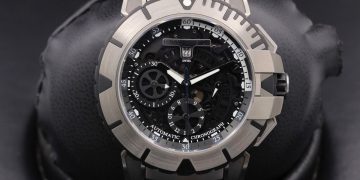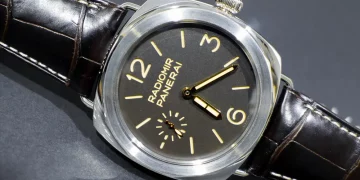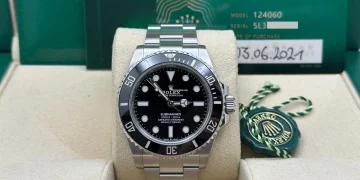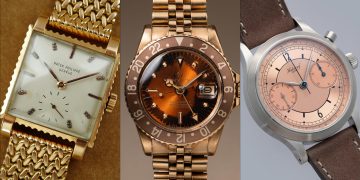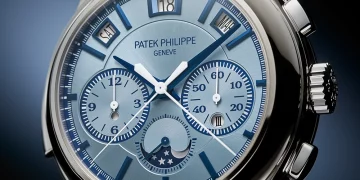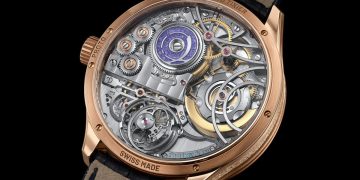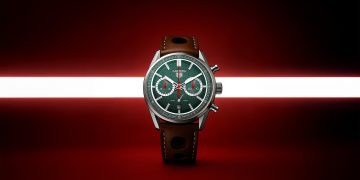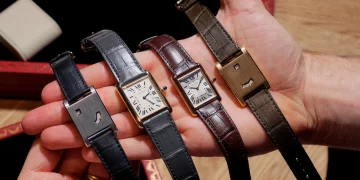Introduction
In today’s fast-paced, technology-driven world, luxury watches have managed to maintain their relevance, continuing to symbolize status, tradition, and craftsmanship. Despite the rise of smartwatches and digital technologies, luxury mechanical watches still hold a unique place in contemporary society, transcending mere functionality to become cultural icons. These timepieces, often passed down through generations, embody values of precision, art, and heritage. As symbols of both personal achievement and luxury, they have transcended their role as mere timekeepers, instead becoming an integral part of global culture and identity.
In this article, we will explore the cultural significance of luxury watches in modern society. We will look at how luxury watches have evolved from simple tools of measurement to highly coveted symbols of status, craftsmanship, and personal identity. We will also examine how their role has shifted in contemporary culture, considering the influences of social media, globalization, and changing consumer values. Lastly, we will explore the emotional and symbolic significance of owning and wearing a luxury timepiece in the modern world.
1. The Evolution of Luxury Watches: From Functionality to Iconography
1.1 Historical Background of Luxury Watches
- Origins of Watchmaking: Trace the early history of horology, beginning with the creation of the first watches in the 16th century. Discuss how watches were initially created for practical purposes, such as navigation, military use, and timekeeping for scientific experiments.
- The Shift to Luxury: Highlight how the watch industry evolved from producing functional timepieces to focusing on craftsmanship and luxury during the 18th and 19th centuries. Brands such as Patek Philippe, Rolex, and Audemars Piguet led the way in creating high-end, precision timepieces that emphasized artistry as well as accuracy.
- Iconic Models and Cultural Influence: Discuss iconic models that have shaped the luxury watch industry, such as the Rolex Submariner, Omega Speedmaster, and Patek Philippe Calatrava, and how these watches became cultural symbols of achievement and distinction.
1.2 The Role of Craftsmanship and Heritage
- Mastering Craftsmanship: Luxury watches are meticulously crafted by highly skilled artisans who devote countless hours to the creation of each piece. The tradition of mechanical watchmaking, with its intricate movements and hand-finishing, remains a major cultural element of luxury timepieces.
- Brand Heritage and Legacy: Many luxury watch brands, including Patek Philippe, Audemars Piguet, and Jaeger-LeCoultre, pride themselves on their centuries-old legacy and heritage. Discuss how the history of these brands adds value and cultural significance to their watches, making them not just tools for timekeeping, but symbols of enduring excellence.
2. Luxury Watches as Symbols of Status and Identity
2.1 The Evolution of Luxury Watches as Status Symbols
- Watches as a Status Symbol: Luxury watches are widely recognized as symbols of success, power, and wealth. This tradition began in the 20th century as the upper class and elites began to invest in high-end timepieces, not just for their utility but as indicators of social status.
- Celebrities and Public Figures: The role of celebrities, sports figures, and business leaders in promoting luxury watches has further cemented their status as symbols of prestige. From James Bond’s Rolex in the movies to tennis star Roger Federer’s partnership with Rolex, famous personalities have often been seen wearing iconic timepieces, which in turn influence public perceptions of these watches.
- Social Media and Modern Status: With the rise of social media, luxury watches have become more than just items to be worn—they are often showcased as a form of digital status. Platforms like Instagram, YouTube, and TikTok have allowed influencers, collectors, and enthusiasts to share their watch collections and create an aspirational image around luxury timepieces. The visual culture surrounding watches is increasingly playing a key role in defining their cultural significance.
2.2 Watches as Personal Identity
- A Reflection of Individuality: A luxury watch often becomes more than just an accessory—it reflects the personality, taste, and values of the wearer. Whether a classic model from Patek Philippe or a sportier design from Omega, the choice of a luxury watch speaks to an individual’s preferences, lifestyle, and aspirations.
- The Emotional Connection: For many people, luxury watches are not just about prestige but about emotional connections. Watches may be passed down through generations, given as gifts to mark milestones, or purchased to commemorate personal achievements. This emotional value often surpasses the material cost of the timepiece, turning it into a family heirloom or a personal symbol of success.
3. Globalization and the Cultural Impact of Luxury Watches
3.1 The Global Market for Luxury Watches
- Expansion of the Watch Market: In recent decades, the global demand for luxury watches has surged, particularly in markets such as Asia, the Middle East, and Russia. Discuss how globalization has led to the expansion of luxury watch brands, creating a more diverse customer base and making these timepieces accessible to new audiences.
- Cultural Diversity and Luxury Watches: Different cultures have different relationships with luxury watches. For example, in China, luxury watches are often seen as a symbol of status and prestige, while in Europe, the emphasis is often on craftsmanship and tradition. Examine how the luxury watch industry has adapted to these diverse cultural values, tailoring marketing strategies and designs to meet the tastes of global consumers.
3.2 Changing Consumer Values in a Modern Context
- Shift Toward Sustainability and Ethical Practices: In recent years, consumers have become more aware of sustainability and ethical production practices. As a result, luxury watchmakers are increasingly focusing on responsible sourcing of materials and reducing their environmental impact. Brands like Omega and Panerai, for example, have incorporated sustainable practices into their manufacturing processes, responding to growing consumer demand for ethical products.
- Millennials and the Modern Luxury Watch Market: Younger consumers, particularly millennials, are redefining luxury. Unlike previous generations, they prioritize experiences and sustainability over material wealth. This demographic is seeking luxury watches that align with their values, such as eco-conscious designs and limited-edition collaborations. Discuss how watch brands are adapting to these new demands, focusing on innovation and unique offerings to cater to this generation.
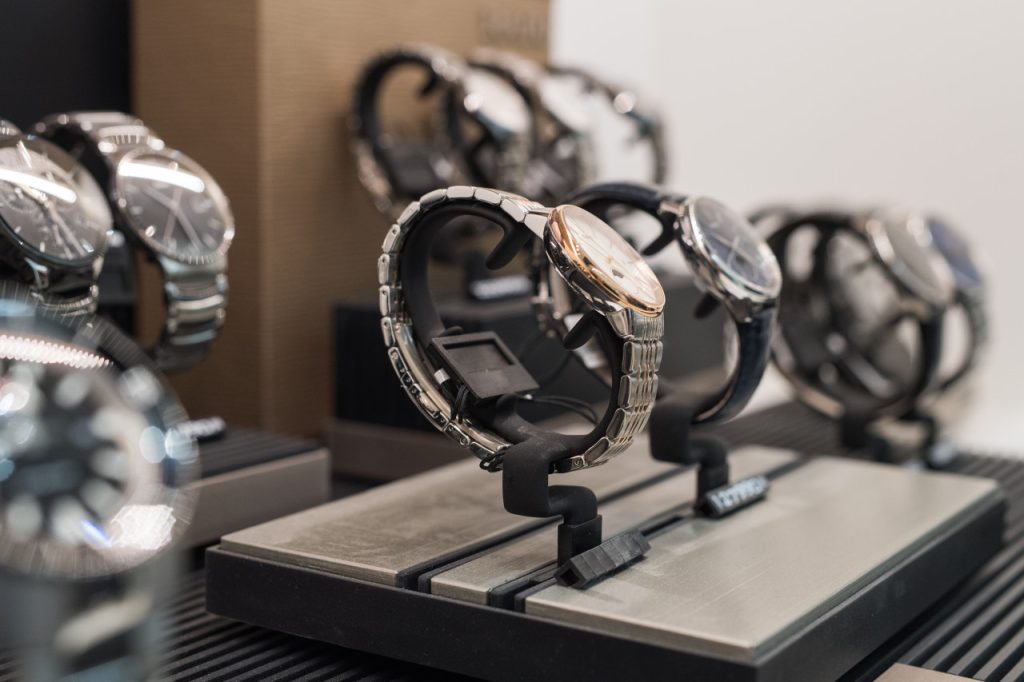
4. The Emotional and Symbolic Significance of Luxury Watches
4.1 Watches as Milestones of Achievement
- Commemorating Success: Luxury watches are often gifted to commemorate significant life events, such as graduations, promotions, weddings, or retirement. These timepieces symbolize achievements and are frequently seen as rewards for hard work and dedication.
- Legacy and Heirlooms: For many, a luxury watch becomes a family heirloom, passed down through generations. The cultural significance of this legacy goes beyond the watch itself—it’s a symbol of continuity, heritage, and family tradition. Discuss how this aspect of watch ownership adds a deeper level of emotional value to luxury timepieces.
4.2 The Cultural Ritual of Wearing Luxury Watches
- Rituals of Wearing: The act of wearing a luxury watch is often a cultural ritual. Whether it’s a daily routine, an accessory for a special occasion, or a rare outing, the manner in which a person wears their watch speaks volumes about their identity and their relationship with time. Discuss the personal rituals involved in luxury watch ownership, including the pride of wearing a timepiece and the social functions that watches serve in modern life.
- Luxury Watches and Confidence: Wearing a luxury watch can instill a sense of confidence and self-assurance in its owner. In many cultures, a luxury watch is seen as an external representation of internal success. This perceived connection between the object and the individual’s confidence plays into the watch’s cultural significance.
5. The Future of Luxury Watches: Tradition in a Digital Age
5.1 The Rise of Smartwatches and Hybrid Timepieces
- Smartwatches in the Luxury Market: As technology evolves, some luxury brands have ventured into the smartwatch space. Brands like TAG Heuer, Montblanc, and Garmin have created hybrid smartwatches that combine the aesthetics of luxury timepieces with the functionality of modern wearable tech. Discuss how these hybrid models could influence the cultural standing of traditional luxury watches.
- Digital vs. Mechanical: Will mechanical timepieces remain relevant in a world where digital watches dominate everyday life? How will the luxury watch industry continue to embrace its traditional values while adapting to the rise of digital technology? Explore the future trajectory of luxury watches in the face of technological advancements.
5.2 Preserving Craftsmanship in a Modern World
- Continued Emphasis on Craftsmanship: Despite technological changes, the core of luxury watchmaking lies in its craftsmanship. Brands continue to focus on artistry, precision, and tradition, which keeps the cultural significance of luxury watches intact. Explore how the art of watchmaking will likely continue to thrive in an increasingly digital world.
- The Role of Modern Collectors: As younger generations enter the luxury watch market, how will they shape the future of watch collecting? Will they continue to place value on craftsmanship and tradition, or will they push the industry toward more technological integration?
Conclusion: The Everlasting Cultural Value of Luxury Watches
In conclusion, luxury watches hold a unique and enduring cultural significance in modern society. Far beyond their primary function of timekeeping, these timepieces symbolize status, heritage, achievement, and personal identity. As technology continues to influence the luxury market, the future of luxury watches will likely see a blending of tradition and innovation. Yet, the emotional and symbolic value of these timepieces will remain central to their cultural appeal, ensuring that luxury watches continue to be treasured as timeless icons for generations to come.



